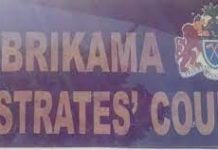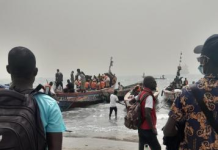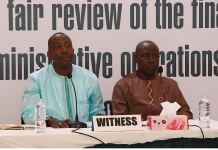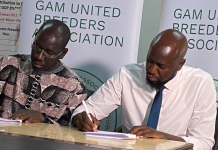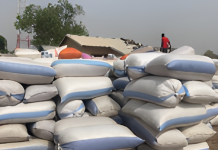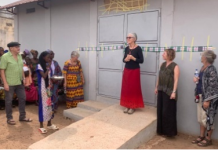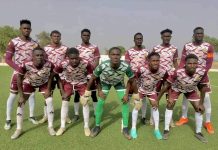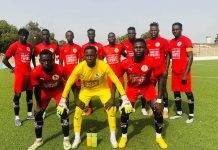A four-day campaign co-funded by the EU against illegal fishing off the West Africa Coast has shown concrete results in tackling illegal fishing in Western Africa. From 28 August to 1 September 2016, the West African Sub-Regional Fisheries Commission (SRFC) organised a regional operation at sea to control vessels fishing in the exclusive economic zone (EEZ) of Gambia, Senegal, Guinea Bissau and Guinea. For the first time, the European Fisheries Control Agency (EFCA) has taken part in such an exercise.
Under the coordination of SRFC, five patrol vessels and about 30 inspectors coming from the Gambia, Senegal, Guinea Bissau and Guinea took part in the “Pedro Cardoso Naco Operation”. Some 82 vessels were controlled and 14 infringements were detected. Two industrial Chinese vessels were identified as fishing illegally in Guinea, in a zone closed to fishing activities for reasons of biological recovery. One of them managed to escape but the other one was sent to port to be sanctioned.
Commissioner Mimica said: “The damage caused by illegal, unreported and unregulated fishing (IUU) is undisputed. In the Gulf of Guinea – the region in the world most affected by this – IUU fishing accounts for more than a third of catches, to a value of up to € 1.5 billion. This operation is a concrete example of the European Union’s added value in supporting good cooperation between coastal states, regional organisations, development partners and technical agencies to fight illegal fishing and ensure that fisheries resources are used in a sustainable way to the benefit of coastal states and coastal communities.”
Commissioner Vella said: “Fighting illegal fishing is a political priority for the EU. Since we adopted new rules in 2010 to strengthen the EU’s fight against IUU fishing we have been working with countries around the world and in particular in West Africa to help them join us in this fight. Regional cooperation is key to fight the sophisticated networks behind illegal fishing. It is therefore very rewarding to see Western Africa pioneering this joint approach, and for the EU to be able to participate through the presence of an expert from our European Fisheries Control Agency. We hope this will be the first of many such campaigns.
Background
The operation was co-funded by the EU programme Governance in the Western African Marine Eco-Region (GO-WAMER) and the World Bank’s West African Fisheries Programme (WAFP).
The GO-WAMER project aims at improving marine resources governance in seven Western African countries: Mauritania, Senegal, Gambia, Guinea-Bissau, Guinea, Sierra Leone and Cape-Verde. Activities are implemented at national and regional level, in partnership with national authorities and regional organisations such as the SRFC. Funded by the EU, this €10.5 million programme is coordinated by the United Nation Development Programme (UNDP).
The SRFC is a regional organisation based in Dakar and composed of seven countries: Mauritania, Senegal, Gambia, Guinea-Bissau, Guinea, Sierra Leone and Cape-Verde. It aims at improving cooperation in terms of monitoring, control, surveillance and harmonization of fisheries policies. On a regular basis, the SRFC organizes joint operations at sea, pooling control efforts and facilitating exchange of information between countries.
This operation was called “Pedro Cardoso Nanco”, in the memory of a Bissau-Guinean fisheries inspector who died at sea after 35 years of activities. He had participated in many sub-regional campaigns organised by the SRFC. Five patrol vessels (of 20 to 50m) were involved in the operation. The coordination centre was based in Bissau in the FISCAP Fisheries Monitoring Centre (FMC). An advanced post was also set up in Conakry. In total, some 30 fisheries inspectors coming from the 4 countries took part to this exercise.
The European Fisheries Control Agency (EFCA) is an EU body established in 2005 to organize operational coordination of fisheries control and inspection activities by EU Member States.

